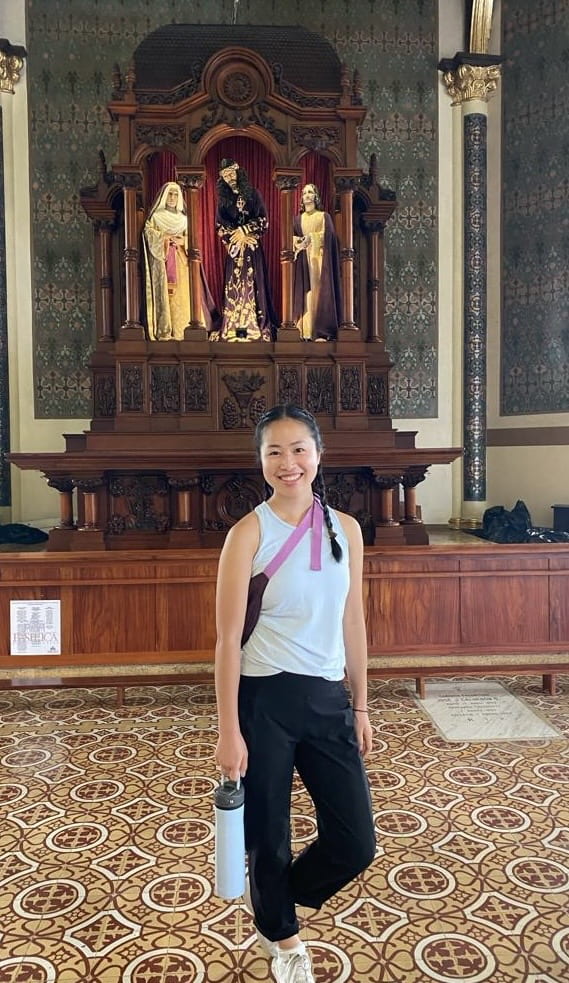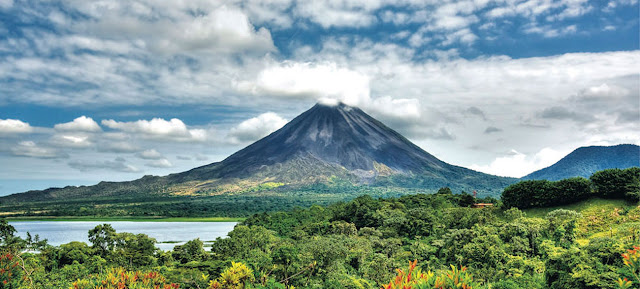ANNA IN SAN JOSÉ, COSTA RICA
¡Hasta luego, Costa Rica!

Anna Hedrick
Yesterday, I could hardly believe my study abroad program was coming to a close. Today, I am sitting at the gate in Juan Santamaría International Airport, preparing for my flight home to Washington state. I feel ready to return, but it’s a bittersweet feeling to leave behind the people and places that have become your home for the past ten weeks.
I’ve dearly missed my friends and family in the US; during my program, I often thought about them and envisioned telling them about all my adventures. I can hardly wait to see them again, and give them a big hug! Something else I’ve missed about the U.S. is pedestrian safety and traffic norms. Throughout my program, I got used to crossing the street literally whenever possible, and putting my faith in the driver’s hands whenever I got into an Uber or bus. It wasn’t always a comfortable feeling, but I learned to accept it. I’m looking forward to driving my car again when I return home.
In addition, I will miss my mamá tica (host mom), housemate Clarissa, my amazing friends (both from the U.S. and Costa Rica), as well as the families and professors at SiNEM, the music center where I did my service-learning.
Also, I’ll fondly remember aspects of daily life in San José. Every morning, I woke up to the sound of birds chirping, distant car honks, and sunshine streaming through my curtains. I’ll miss being in my relaxing home stay and chatting in Spanish with my mamá tica before breakfast. I’ll remember walking through the busy streets of San José, taking the bus every afternoon to service-learning, going on exciting excursions every weekend, and squeezing in tough morning workouts at Gym ProSalud. But most of all, I’ll miss Costa Rican culture: the inviting atmosphere, the affection and care toward others (hugs!), the delicious food (gallo pinto!) and the positivity and happiness expressed in Costa Rican frases, expressions, and attitudes. I am so thankful for all of it ❤️
When I return to the US, it is possible I’ll experience reverse culture shock. For example, I probably won’t greet strangers with “buenos días” and a smile when I walk down the street. It’s likely that I’ll experience physiological changes in response to differences in diet, exercise, and climate. Washington is much colder and drier. It might be difficult to adjust to a faster paced lifestyle as well, and adapt to differences in the *perception* of time (Costa Ricans are a little more relaxed and forgiving when it comes to schedules and the concept of time.)
My plan is to share my stories and photographs with friends and family, as well as my blog, of course. I’m thinking of creating a mini documentary with my photos and media, or designing a slideshow presentation. Luckily, I have two weeks of break before starting spring quarter, so I plan to rest and gradually readjust to my life in Bellingham, WA.
I think that staying in contact with my friends from Costa Rica will be essential in keeping study abroad a key factor in my life. Luckily, I can communicate via WhatsApp or iMessages with mamá tica, my music professors, the Costa Rican students and families, the ISA staff and my best friends. Also, maintaining and improving my Spanish is crucial. I will continue speaking Spanish with my friends in Bellingham, in Costa Rica, and from all over the U.S. I’ll incorporate Costa Rican phrases into my daily speech, and try to cook one Costa Rican dish a week. My study abroad program may have ended, but my Spanish journey is still blooming. I feel very bilingual now, and I look forward to growing my language skills and cultural competency long after I leave Costa Rica.
Studying abroad in Costa Rica has been a beautiful experience and I’m thankful that I had the privilege of visiting this country and meeting such wonderful people. The social connections that I’ve made are the most valuable to me, and I feel like I’m part of a special, diverse community. Muchas gracias to WWU EdAbroad, International Studies Abroad, the ISA on-site staff – Adriana and Xinia, my host university – Universidad Veritas, my host organization – El Sistema Nacional de Educación Musical, including my supervisors Esteban and Guiselle, as well as my mamá tica – Guiselle, and the community of friends I made along the way. ¡Que les vaya muy bien!
Hasta la próxima y pura vida 🌺🫶🏼😄 ~ Anna





